Why American cycling needs a new Greg Lemond or - whisper it - Lance Armstrong
A look at America’s fickle relationship with the Tour and the hero needed to restore fandom
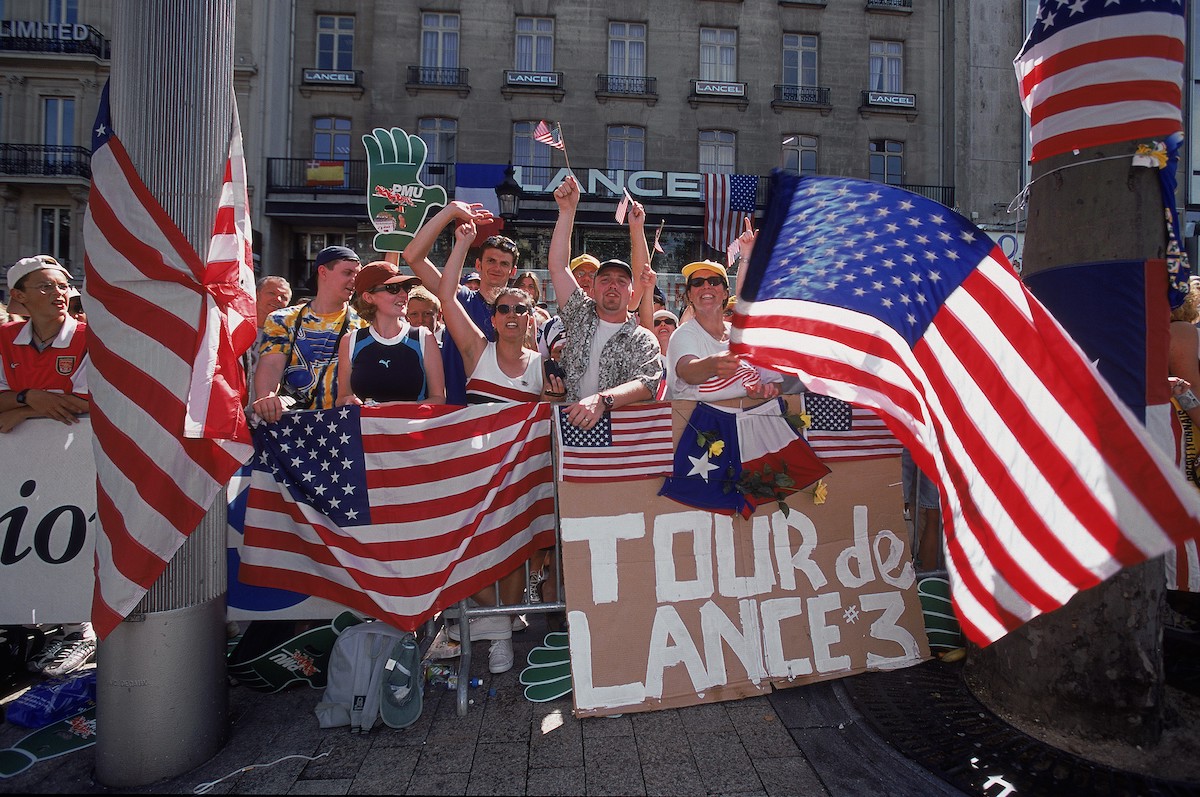
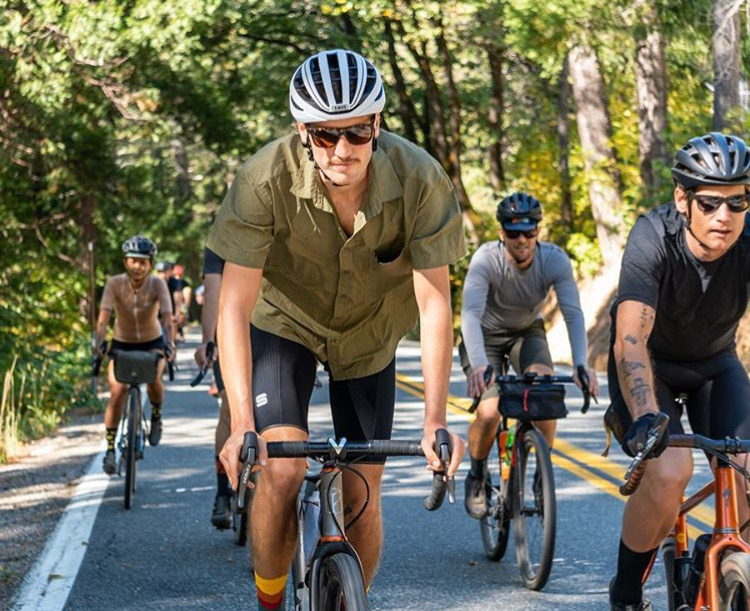
We love sports in America. The hype, the drama, the speed, strength and skill. And the stats, always the stats. Mostly, we love ball sports —football, basketball and baseball. They’re a battle in a set arena, where two teams of five to eleven players face off and the team with the most points at the end of regulation wins.
There are no balls at the Tour de France, at least not for sport. But there is coordination. Just watch a pack of sprinters maneuver for the line in slow motion. Or Tom Pidcock lay his bike over like a MotoGP racer. The drama unfolds on a network of secondary roads that wind through towns, up over mountains, through valleys, gorges and ultimately up and down the most famous cobbled boulevard in the world, the Champs Élysées.
There are 176 players on the Tour’s pitch, riding for 20 different international teams. It’s 21 days, anything can happen. There are heroes, villains and underdogs. There’s risk, drama, Herculean efforts, bad boys, wise guys, brotherhood, tact and stats. Remember, we love stats.
America’s love for professional team sports took off in the roaring 1920s. A combination of widespread daily print media and the depiction of superstars like Babe Ruth of the New York Yankees baseball team popularized sports in mainstream culture. Ruth was a dominant hero, an archetype American fans love to get behind. (Merely winning is not enough, American’s need their hero to dominate.)
Across the waters, the Tour de France was founded as a publicity stunt for a failing French newspaper in 1903. It gained popularity and prominence across Europe, but it wasn’t until the late 1980s that Americans started paying attention. That was thanks to a Californian cyclist by the name of Greg LeMond.
LeMond won the Tour in 1986, then nearly died in a hunting accident. LeMond recovered and went on to win two more times in 1989 and 1990. If Americans tuned into the Tour in those days, no doubt it was because of LeMond’s stunning win in 1989. He had lost the lead to Laurent Fignon, only to take it back in the final stage.
LeMond won the overall by just eight seconds, the smallest margin in the history of the race. His come-from-behind win became known as “the most astonishing victory in the history of the Tour.” It also shed a light on the race for American fans and inspired the next generation of American cyclists including the Tour’s most notorious star-turned-villain.
Get The Leadout Newsletter
The latest race content, interviews, features, reviews and expert buying guides, direct to your inbox!
Lance Armstrong, the He-Who-Must-Not-Be-Named of cycling, the Texan whose Lone Star flag flapped over the French capital as he addressed the world from the top step of the podium after his seventh consecutive victory, asking everyone to believe in miracles.
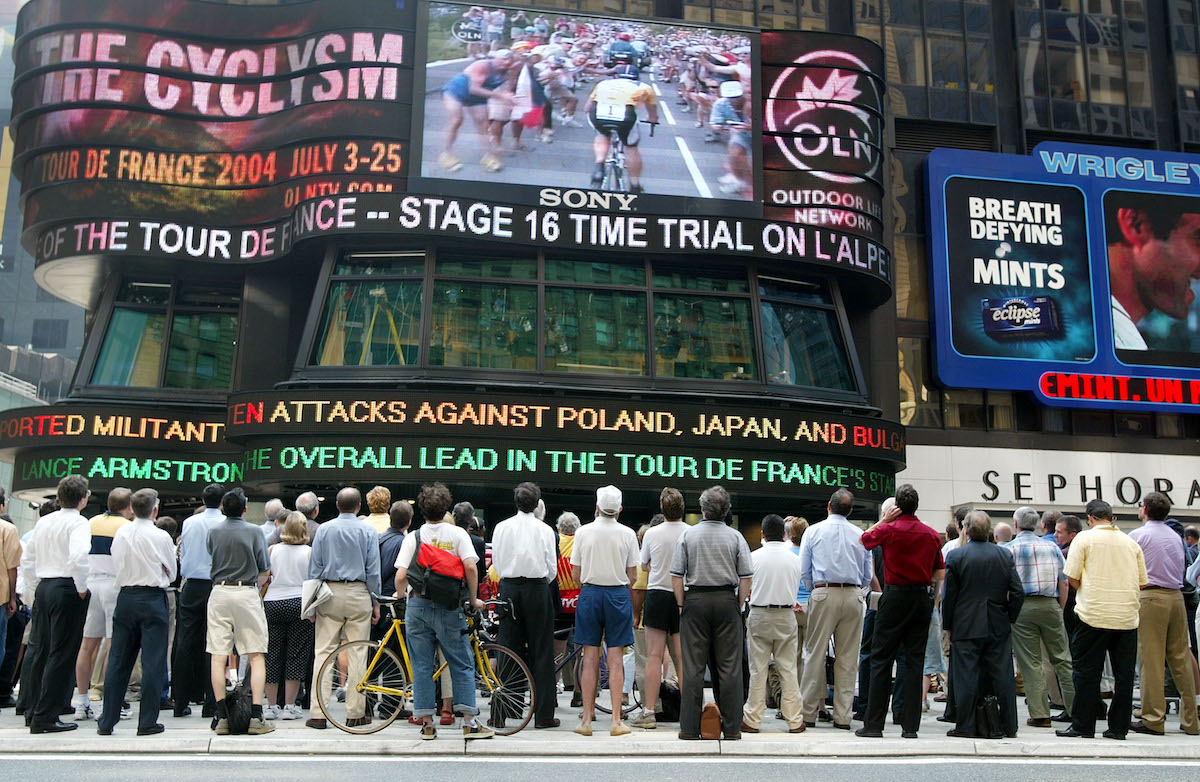
American gathering in New York's Times Square to watch Lance Armstrong compete in the Tour de France
Years later, after being outed by former teammates, Armstrong admitted to doping throughout the entirety of his Tour-winning run. These days, opinions run wild when it comes to Armstrong. His record-setting seven titles have all been erased from the history books but the man has not been forgotten and his influence over the race still looms. During the Tour, Armstrong and his ever faithful teammate, George Hincapie, host a popular daily podcast where they analyze the race and give insights into their experience of the Tour some twenty years ago.
Villain or not, no one can dispute that Armstrong’s story and string of dominant victories crossed the cultural chasm. In America and the world over, he and the Tour de France went from obscurity to household names, a feat no other cyclist has achieved.
After Armstrong’s retirement in 2005 the question became, who’s next? Because without a hero, America’s interest in cycling wanes quickly.
For years now, Jonathan Vaughters’ various outfits have been on a mission to prove that they could win big races and stay clean. They had promising riders like Alex Howes, Peter Stetina, and Tejay van Garderen who went on to have solid careers, but nothing even close to the fandom of LeMond or Armstrong. The next crop of American hopeful stars included the likes of Joe Dombrowski, Ian Boswell and Nate Brown — again, great riders but no superstars. But this year’s Tour is showing signs that things could be changing.
Two young Americans sharing the same hometown of Durango, Colorado, Quinn Simmons (Trek-Segafredo) and Sepp Kuss (Jumbo-Visma) could be on their way. As Armstrong debriefed stage 15 with Hincapie, both noted the impressive performance of Simmons, the Tour’s youngest rider.
“I can’t say enough about Quinn Simmons,” said Armstrong. “It is so hard, two weeks in, to have that kind of endurance, that kind of power, to still be affecting the race. My first year in the Tour, I was the youngest guy in the race, I never could have done that.”
Hincapie then chimed in, “We’re going to be seeing a lot of him in the coming years that’s for sure.”
Meanwhile Sepp Kuss, who soloed to a mountain top stage win at last year’s Tour has heaps of promise. With the loss of Primož Roglič and Steven Kruijswijk, he now has the pressure of the defense of Jonas Vingegaard’s yellow jersey largely on his shoulders.
Kuss has one of the most important duties of anyone in the peloton over the next few days.Will it be an experience that launches him to the next level?
There are several other American’s knocking on the door as well. Similar to Kuss, Brandon McNulty has played a critical role for Tadej Pogačar in the mountains. UAE Team Emirates has already lost climbing ace, George Bennett, and strongman, Vanguard Laengen. Then there's Matteo Jorgenson who has come painfully close to stage wins on multiple occasions. And Neilson Powless (EF Education-Easypost), who narrowly missed the maillot jaune by a mere 13 seconds on stage 5, it would have been America’s first legitimate wearing of the jersey since LeMond’s victory nearly 30 years ago.
Americans love their sports. Their heroes are not just the best, they dominate– Tiger Woods, Serena Williams style. Professional road cycling may never be a top sport in America. But if it does grow in popularity, it will be because of a hero. A story people can root for and more importantly, they need their hero to win again and again. Will one of these names surface as the next Armstrong or LeMond? Be sure to tune into this last week of the Tour to get a glimpse at a possible star of the future.

Thank you for reading 20 articles this month* Join now for unlimited access
Enjoy your first month for just £1 / $1 / €1
*Read 5 free articles per month without a subscription

Join now for unlimited access
Try first month for just £1 / $1 / €1

Marshall is a freelance writer from Missoula, Montana. He road raced throughout the U.S. and Europe with the US U23 National Team. Marshall has worked as a bike tour guide, brand marketer, and promoter of two wheeled stoke. In 2019 he traveled the U.S. racing, riding, and reporting on the sport of gravel. Marshall's aim is to help grow the sport of cycling by telling stories that hold the door open for people to become riders.
-
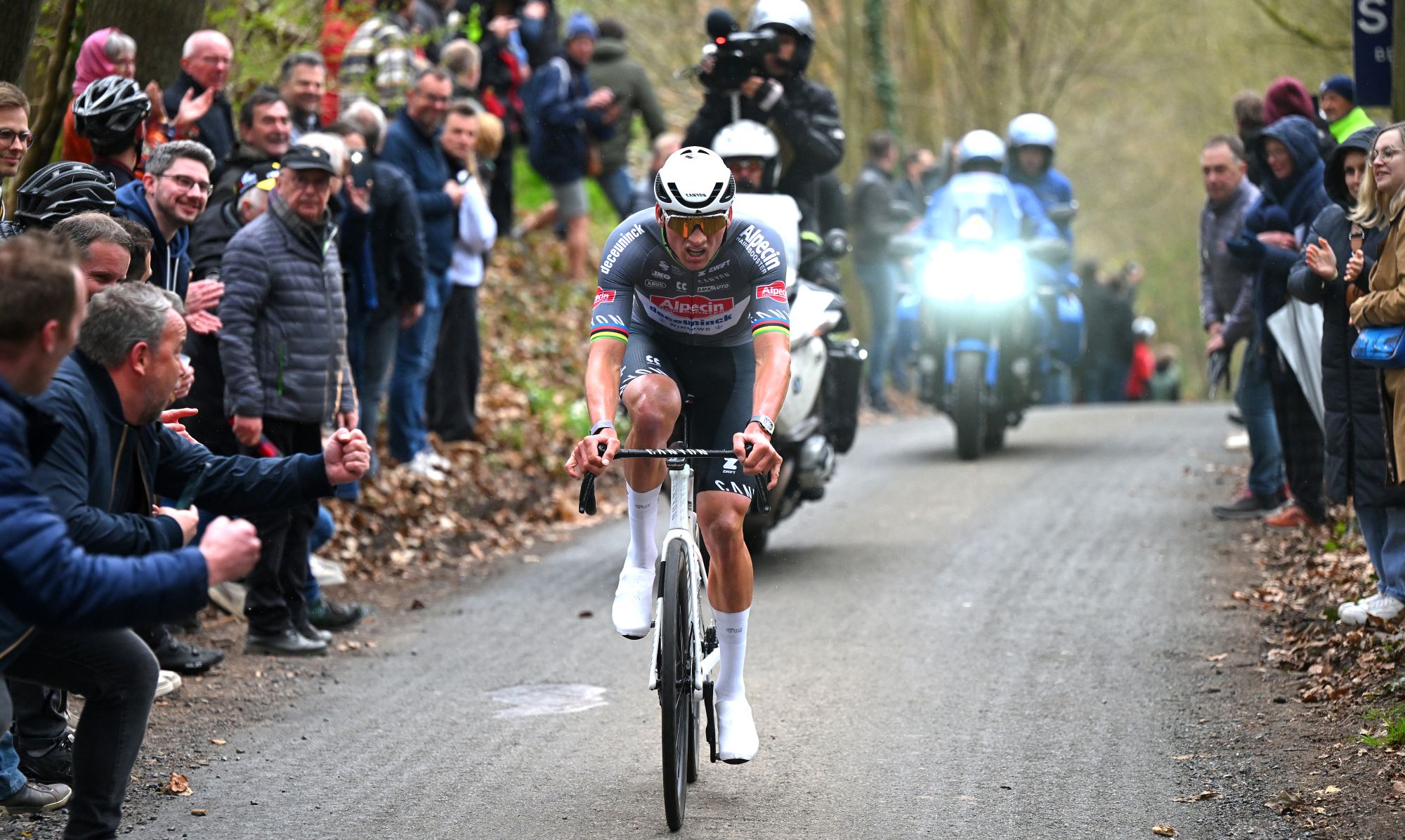 'I start every race to win' - Mathieu van der Poel fired up ahead of Paris-Roubaix showdown with Tadej Pogačar
'I start every race to win' - Mathieu van der Poel fired up ahead of Paris-Roubaix showdown with Tadej PogačarTwo-time winner says he has suffered with illness during spring Classics campaign
By Tom Thewlis Published
-
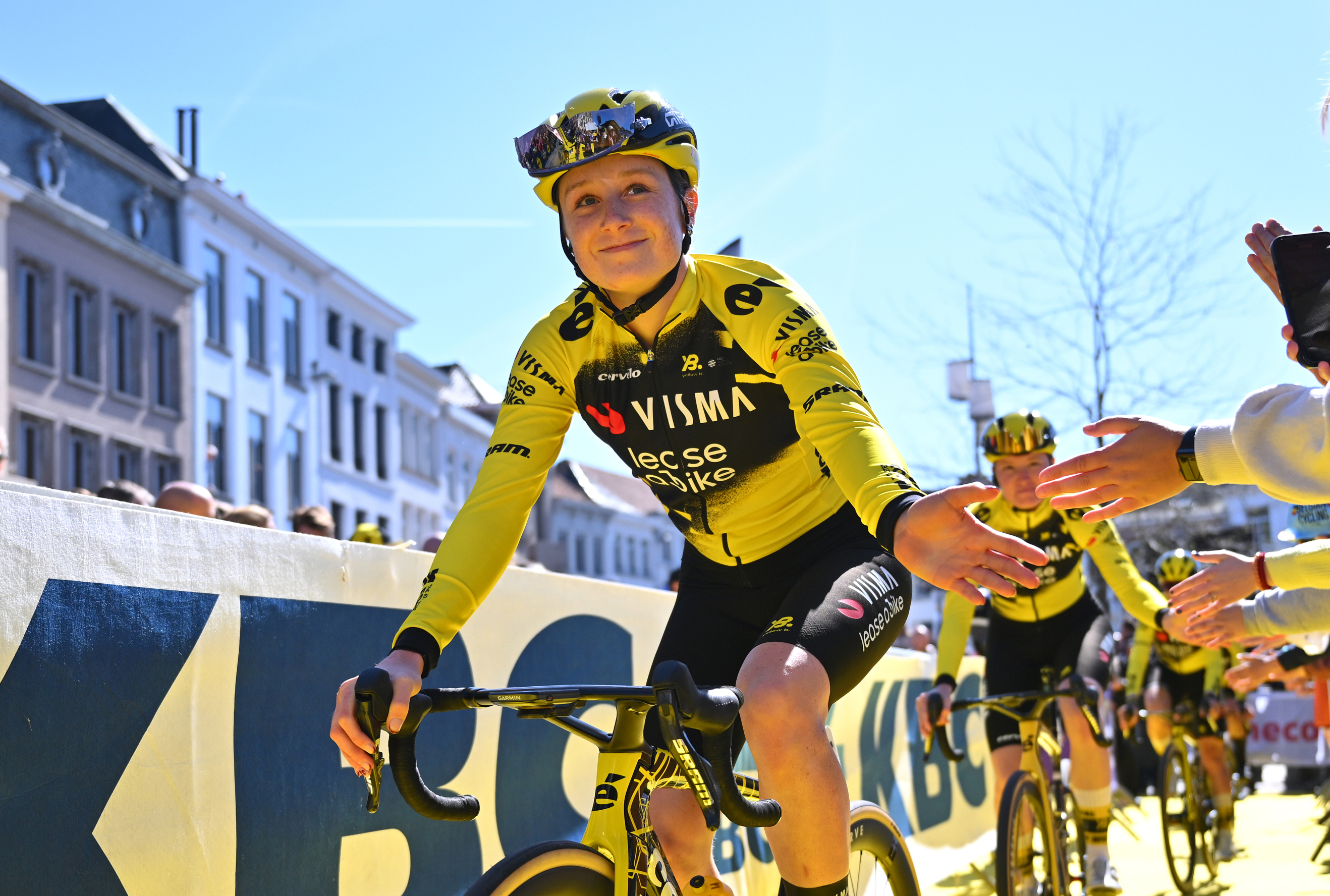 'It's really surreal that now I'm part of it' - 19-year-old Imogen Wolff set to go from spectator to racer at Paris-Roubaix
'It's really surreal that now I'm part of it' - 19-year-old Imogen Wolff set to go from spectator to racer at Paris-RoubaixBrit first came to see the 'Hell of the North' when she was six
By Tom Davidson Published
-
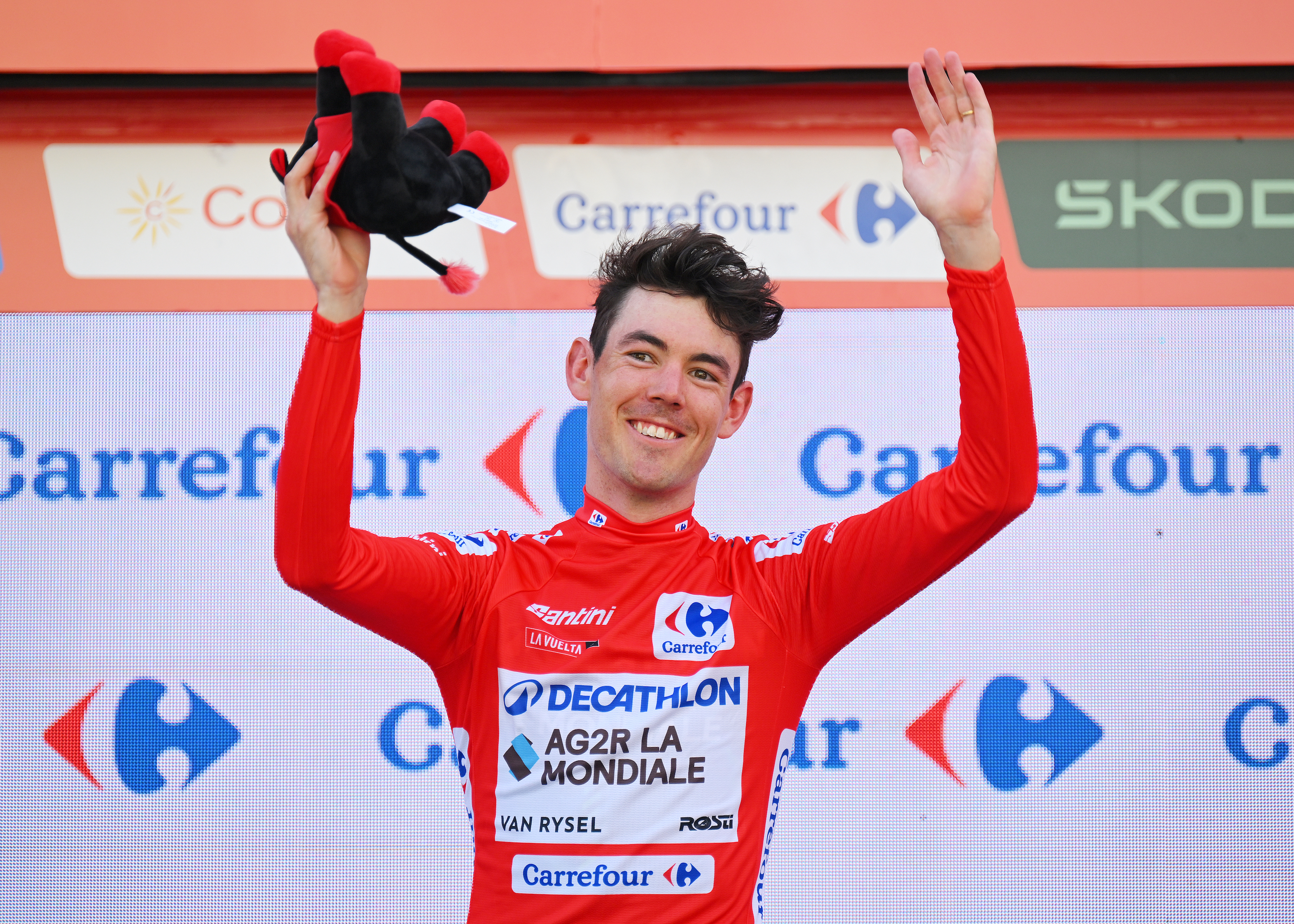 The Vuelta a España is chaos, and proof you shouldn’t try to be too clever in cycling
The Vuelta a España is chaos, and proof you shouldn’t try to be too clever in cyclingBen O’Connor could win the whole race after being gifted the lead by Red Bull-Bora-Hansgrohe last week
By Adam Becket Published
-
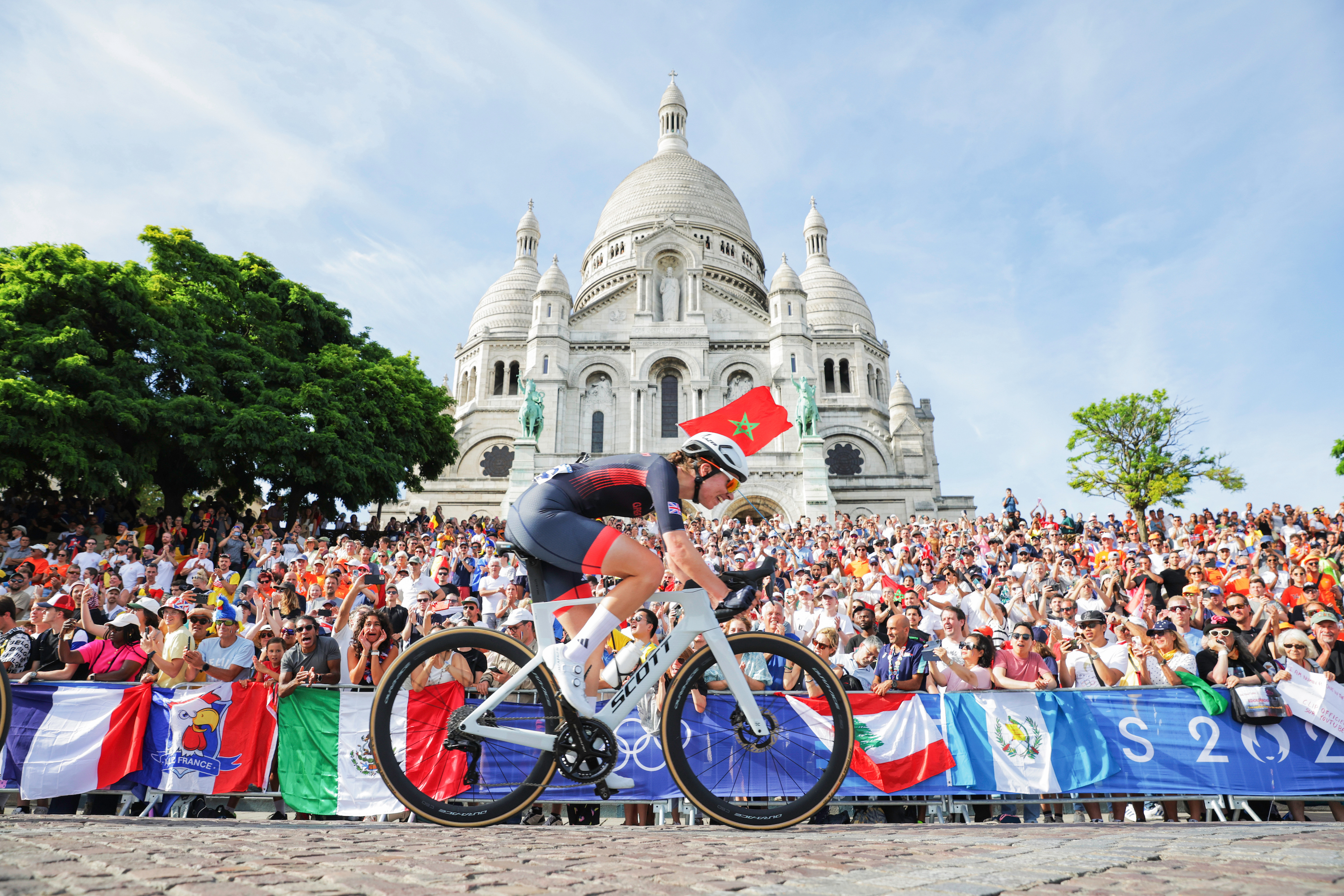 I watched the Olympic road race with friends who aren’t cycling fans, and it made me realise how insular the sport is
I watched the Olympic road race with friends who aren’t cycling fans, and it made me realise how insular the sport isA global event like the Olympics is the perfect time to realise how silly and niche our sport is to most people
By Adam Becket Published
-
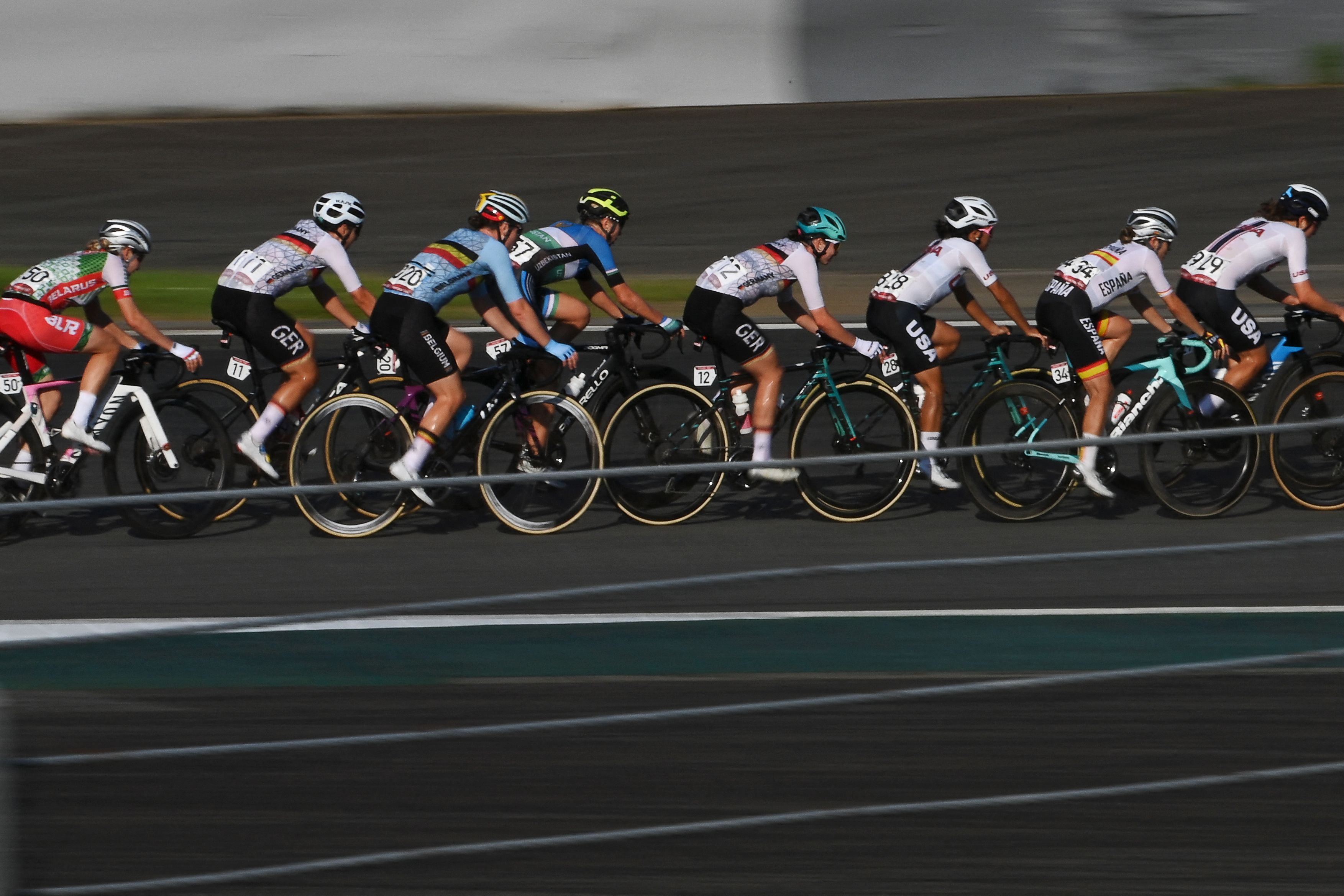 The Olympic road race peloton will be small - but that's a good thing
The Olympic road race peloton will be small - but that's a good thingThe reduced bunch will look odd to seasoned viewers of elite cycling, but the Paris road races are going to be a spectacle
By Adam Becket Published
-
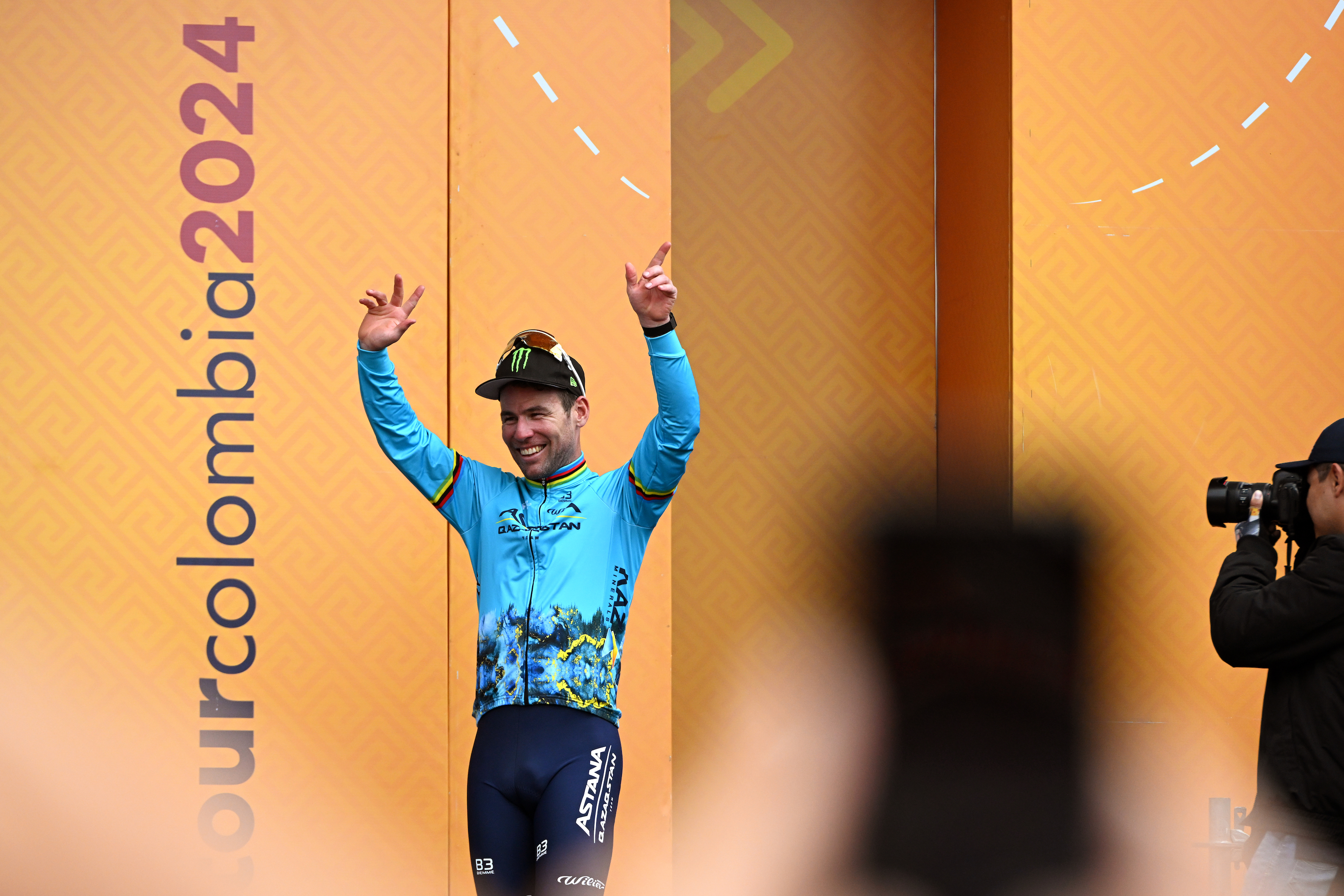 Mark Cavendish will win at the Tour de France, and break the stage win record
Mark Cavendish will win at the Tour de France, and break the stage win recordThe Astana-Qazaqstan rider, newly knighted, will come good. Just wait.
By Adam Becket Published
-
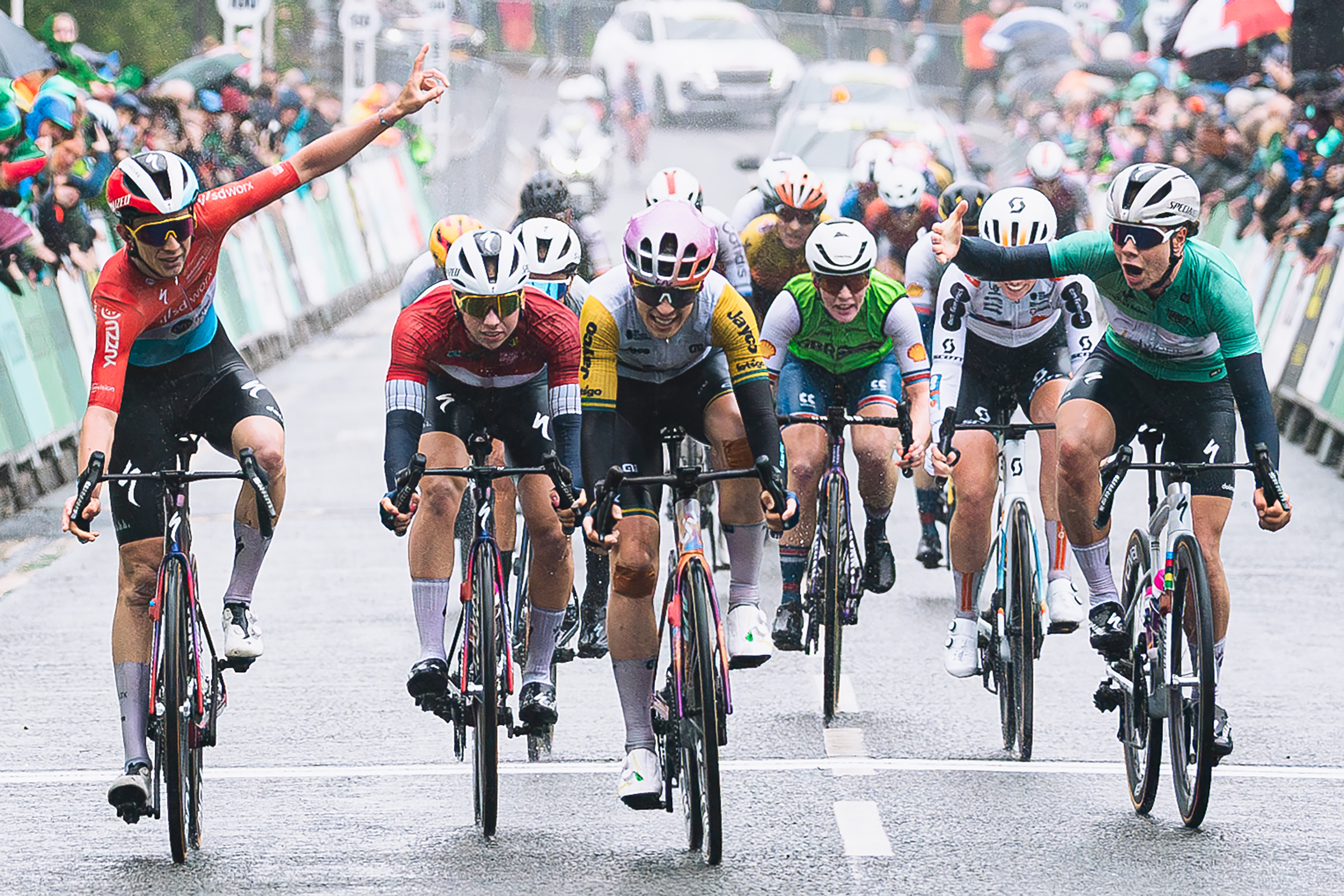 In cycling, not even the best rider in the world can manufacture a win
In cycling, not even the best rider in the world can manufacture a winLotte Kopecky tried to set up Christine Majerus for a win at the Tour of Britain, but its failure proved that cycling is difficult to plan
By Adam Becket Published
-
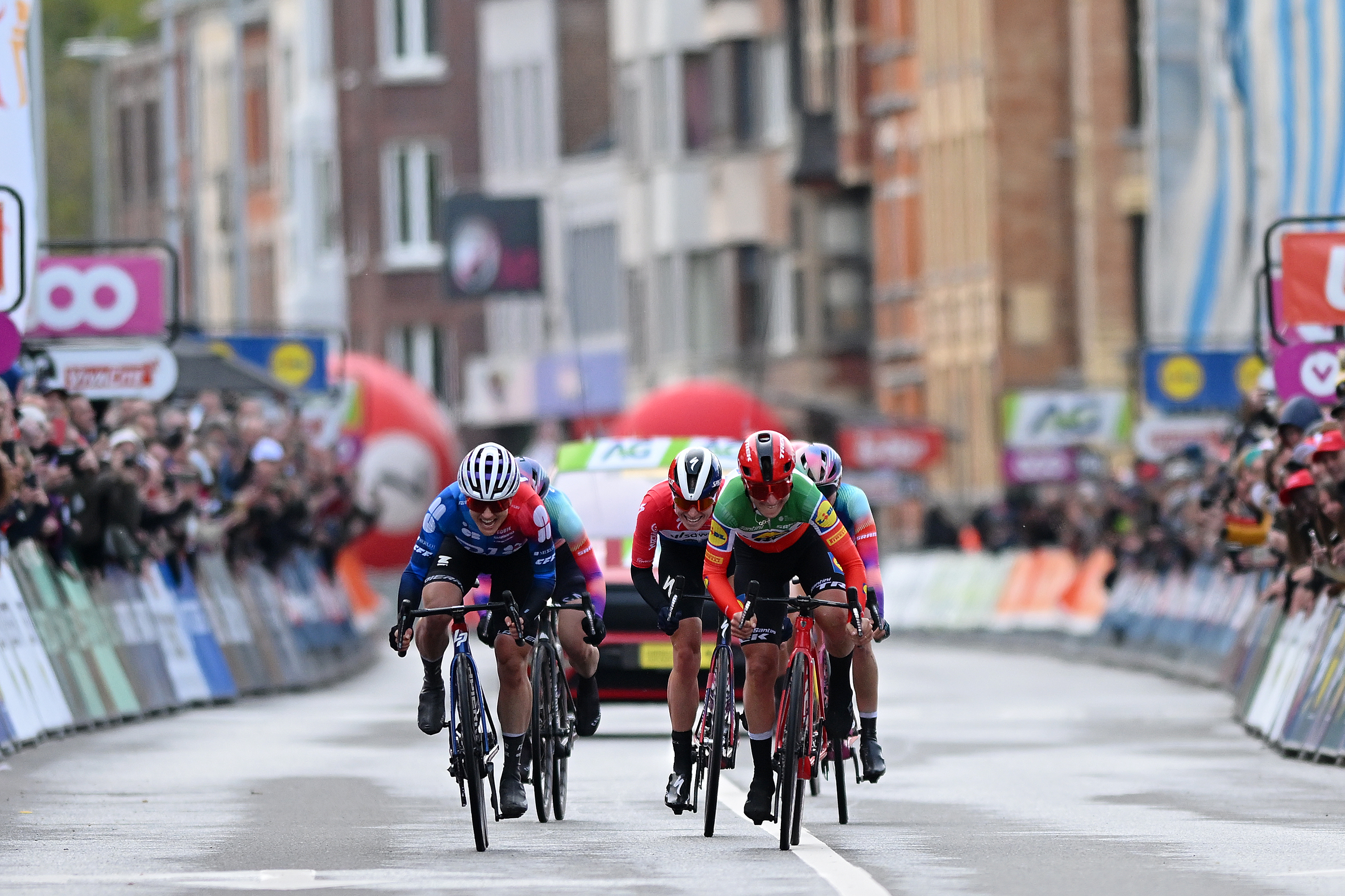 Was this the best women’s Classics campaign ever?
Was this the best women’s Classics campaign ever?Every race seemed to go down to the wire, with little in the way of control or domination. It could hardly have been better
By Adam Becket Published
-
 It’s time for riders to stop celebrating before they reach the finish line
It’s time for riders to stop celebrating before they reach the finish lineIn the light of yet another rider celebrating too early at the weekend, is it time to simply cross the line first?
By Adam Becket Published
-
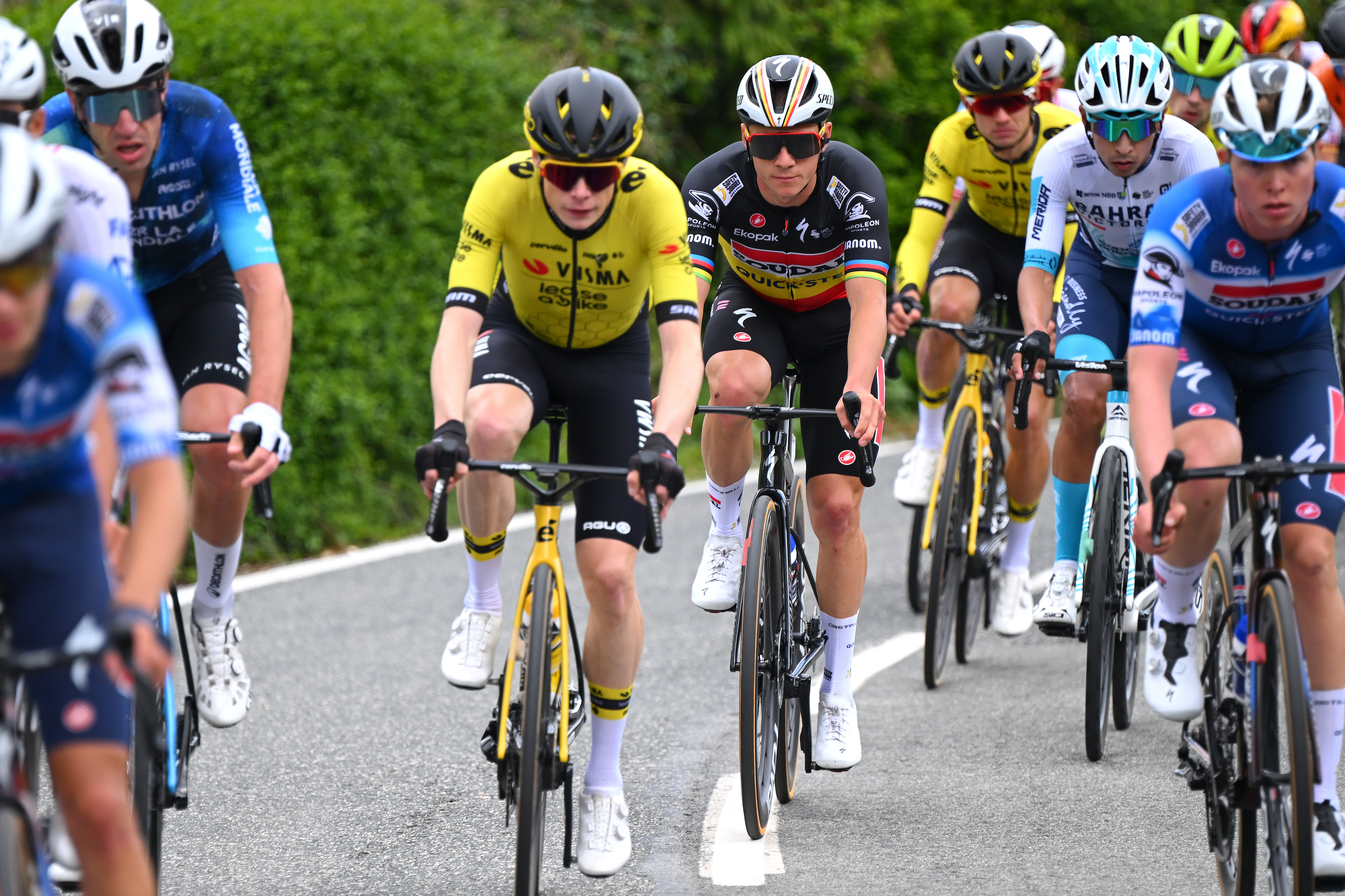 Will the Tour de France be won by the last man standing?
Will the Tour de France be won by the last man standing?With Jonas Vingegaard, Remco Evenepoel and Primož Roglič hitting the deck at Itzulia Basque Country, all three now face battle to get their seasons back on track
By Adam Becket Published